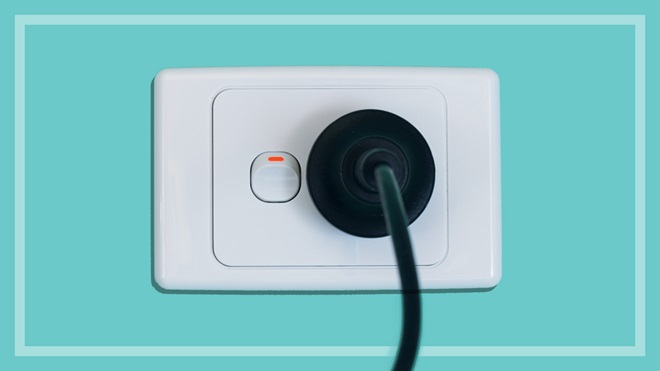Need to know
- Household appliances account for around 30% of household energy use
- Appliances still use power when they're in standby mode – and this can add up to 10% of your electricity use
- Our expert appliance reviews include information on appliance energy use and running costs to help you choose the most efficient products
With the rise of devices like smart TVs and smart speakers, the number of appliances in Australian homes that are 'always on' is increasing by the minute.
But what impact does all this connectedness have on your electricity bill?
We take a look at whether it's worth flicking off all those switches as you dash out the door.
CHOICE verdict
The short answer: Yes, it's a good idea to switch off appliances at the wall when they're not in use and when you go on holiday.
It's not going to make you rich, but it will save you money – and it's better for the environment.
It's a good idea to switch off appliances at the wall when they're not in use
It's also wise to keep an eye on how many devices you keep plugged in at any one time, so you can be on top of any changes to your electricity bills.
Our home products expert Denis Gallagher talks appliance energy use.
It all adds up
Appliances still use power when they're on standby. So keeping your Google Home or Alexa permanently switched on just in case you need to ask: "Hey, what's the weather like today?" could be adding dollars to your bill.
We're not talking big bucks, but standby power can account for more than 10% of your household electricity use.
And that's cash that could be in your bank account, rather than lining the pockets of the energy providers.
Standby power can account for more than 10% of your household electricity use
There's also a potential bigger cost: the standby energy used across Australia collectively amounts to tonnes of extra greenhouse gases in Earth's atmosphere.
Learn more about the true cost of leaving appliances on standby.
The good news? Appliances are becoming more energy-efficient
We may be using more appliances than ever, but some of them are getting more efficient.
According to the Department of the Energy, household appliances in Australia account for about 30% of the energy we use in our home, and almost half of all household greenhouse gas emissions.
Household appliances in Australia account for about 30% of household energy use, and almost half of all household greenhouse gas emissions
But over the last decade, as retailers have created more energy-efficient products and Australians have become more aware of energy rating labels, the amount of household electricity we use has dropped.
The smart home
CHOICE TV expert Denis Gallagher says it's good practice to tally up just how many appliances you have running all the time – especially in the age of internet-connected devices.
"In 2018, the average Australian home had 15–17 internet-connected devices, and this is set to more than double by 2022. There's going to be many more of these devices throughout the home, so it's a good idea to keep an eye on how your energy bill could be impacted."
What about essential appliances?
While you can turn off most internet-connected devices, TVs and lights, what about appliances you can't switch off – like fridges, freezers and alarms?
We've been testing appliance energy use for decades, and our labs regularly drill down to check important stats like appliance energy use and running costs. We can help you choose the most efficient products in each category – great for both the planet and your bottom line.
We're on your side
For more than 60 years, we've been making a difference for Australian consumers. In that time, we've never taken ads or sponsorship.
Instead we're funded by members who value expert reviews and independent product testing.
With no self-interest behind our advice, you don't just buy smarter, you get the answers that you need.
You know without hesitation what's safe for you and your family.
And you'll never be alone when something goes wrong or a business treats you unfairly.
Learn more about CHOICE membership today
Stock images: Getty, unless otherwise stated.



